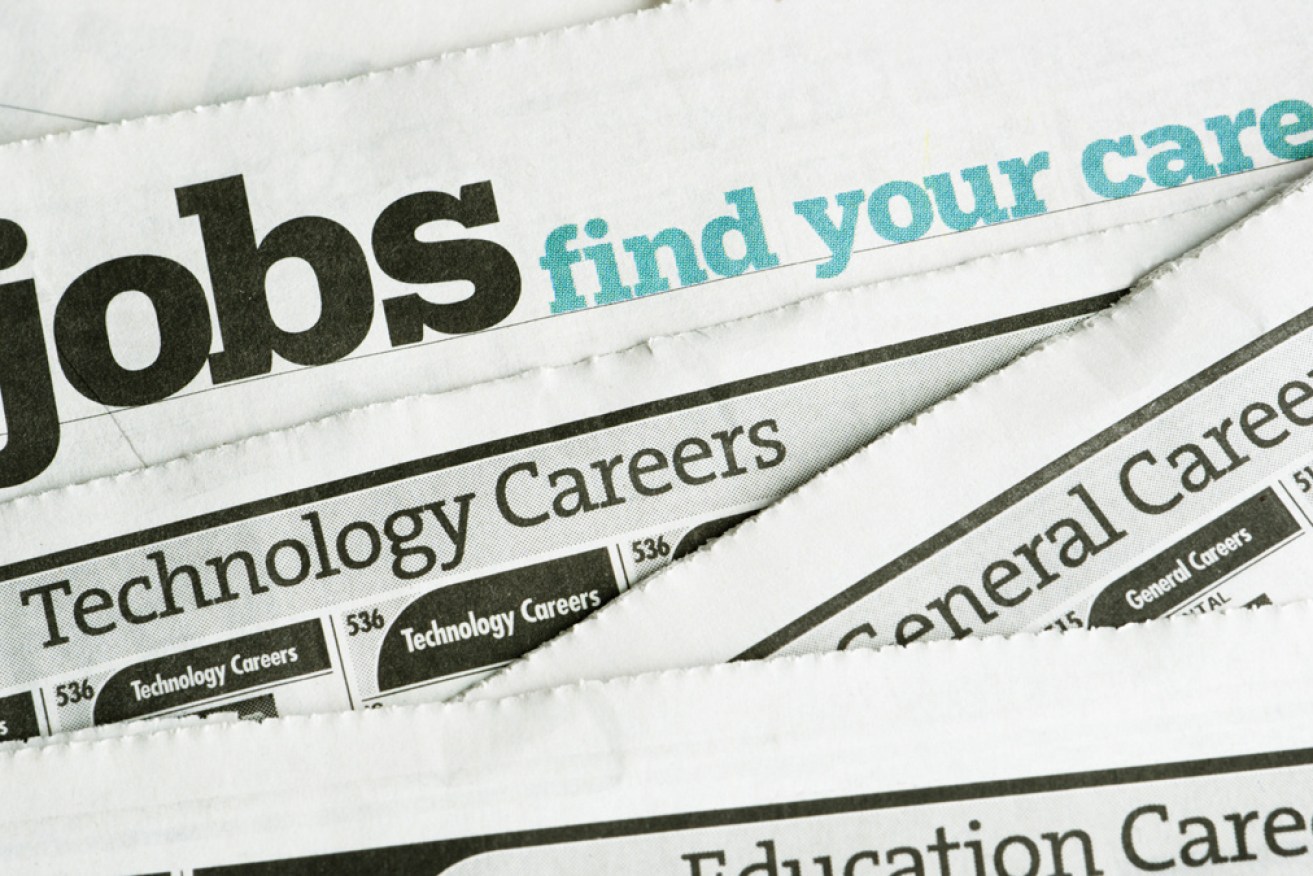‘Stuck in the slow lane’: Australian businesses signal slowdown in employment


Jobs growth remains strong but is easing up, based on research by NAB. Photo: Getty
Job creation looks set to slow down in 2020 as businesses grapple with money-conscious consumers squirrelling money away instead of spending it on goods.
Business confidence dropped to a six-year low in December off the back of falling profit and trade expectations, the final monthly NAB business survey for 2019 found.
Alongside those weaker profit forecasts, businesses said they expected appetite for employment to remain flat.
NAB economists calculated that employment will lift by 18,000 jobs a month for the next six months, based on what businesses signalled (and how those signals have historically aligned with actual jobs creation).
Gareth Spence, senior economist at NAB, told The New Daily that figure – although still positive – is “a little bit slower than what the labour force has been doing, especially over the past year”.
In 2019, the rate of jobs creation was closer to (but not quite) 30,000 new jobs a month.
“Basically, what we’re taking from the survey is that there’s still a relatively strong labour demand from business, given what they’re telling us about trading conditions and profitability, but it implies a small slowing from what we’ve seen,” Mr Spence said.
“That’s roughly enough to keep unemployment rate where it is.”
If the participation rate – a measure of people either working or looking for work – remains flat, the unemployment rate could potentially see a “gradual decrease”.
That’s because population growth slowed marginally in 2019 to 1.5 per cent year on year at June from 1.6 per cent in March, meaning less jobs are needed to meet demand.
But even with a gradual decrease, Mr Spence said ‘full employment’ (defined by the Reserve Bank as 4.5 per cent unemployment) is still a long way off.
Confidence is key to higher wages
Until Australia hits full employment wages growth will likely remain subdued, as higher unemployment means businesses don’t have to increase pay packets to attract new staff.
Instead, Mr Spence said the latest data implies wages growth will see a “very modest increase” in wages growth from the current 2.3 per cent to 3 per cent by the end of 2021.
“That’s a pretty weak outcome,” he said.
With inflation currently hovering around 1.7 per cent, real wages growth is closer to 0.6 per cent.
Getting to full employment would require the creation of around 700,000 new jobs in addition to the ones currently absorbing population growth, Mr Spence said.
“What you would need to see that kind of demand would be a bit of a pick up in confidence among businesses,” he said.
But confidence among consumers and businesses is in short supply, according to CommSec senior economist Ryan Felsman.
“We’ve got business confidence at six-and-a-half-year lows, we’ve got consumer confidence at four-year lows and there’s a variety of factors around that,” he told The New Daily.
The biggest risk to the Australian economy in 2020 – in our view – is confidence.
“When you have wages growth around 2.2 per cent currently, and decade averages prior to that were 3 or 4 per cent, of course consumers aren’t jumping for joy – their pay rises are only marginally above inflation.”
The property price falls that punctuated 2018 and 2019 exacerbated those consumer woes, Mr Felsman said, and the RBA’s rate cuts left them “more acutely aware that the Australian economy is growing at its weakest growth rate in a decade”.
“If consumers aren’t spending, that has a knock-on effect to the business sector,” he said.
“They have to lower their prices, they’re not making as much profit so trading conditions and profitability conditions in the NAB survey today were at their worst in five years.
“What this all points to is a confidence issue in Australia.”
With an upcoming US election, the rapid spread of the deadly coronavirus, and the smoke from Australia’s bushfires yet to clear, it could be some months before confidence improves.
In the meantime, Mr Felsman said Australia will be “stuck in the slow lane”.








